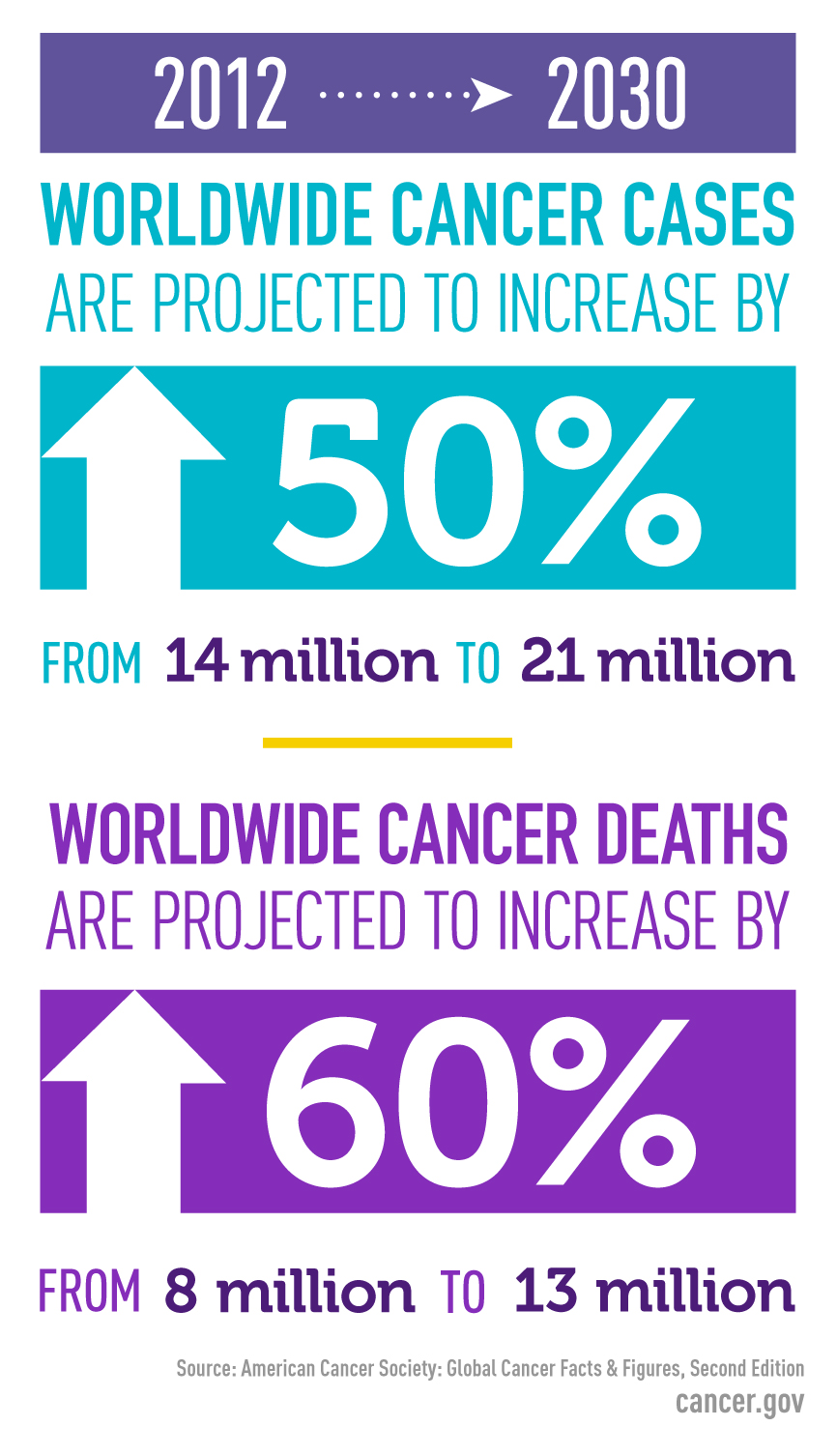A cancer vaccine – a potential cure for cancer?
This is why cancer research has been in the spotlight for many decades. But finding a cure that can kill any cancer cell has been shown to be quite challenging. Besides the commonly used chemotherapy which comes with many side-effects, new biotech startups have demonstrated some promising alternatives. One basic idea is to enhance the patient’s immune system, thereby enabling the immune cells to kill the tumour. Mentionable is the CAR T-cell therapy which has been used for treating certain types of lymphomas and leukaemia. This therapeutical approach relies on the cytotoxic activity of T-cells against foreign cells (such as cancer cells). The T-cells are removed from the patient’s body and reprogrammed so that they can specifically target certain tumours. Although this method was shown to be successful in many cases, the whole process is time-consuming and challenging to perform.
Three T-cells that surround one cancer cell

Source
This is why researchers are looking for other approaches to promote the body’s immune response. About two weeks ago at Stanford University, researchers developed a so-called local immunotherapy against cancer (Sagiv-Barfi et al., 2018) which was also stated as a cancer “vaccine”. However, in this case the name “vaccine” might be misleading since it is quite different from a normal vaccine against the flu for instance. In a normal vaccination, a milder form of the virus is injected into your body. This stimulates your immune system which then starts producing specific immune cells that target the virus. When you are infected once again, the body’s immune response will be much faster and most likely you won’t become sick. This is because your body has adapted to the pathogen (adaptive immune system).
This cancer vaccine is different. You are NOT infected with cancer cells but rather with immune-stimulating agents. The experiments were carried out in mice where solid tumours were injected with immunoenhancing drugs which stimulated the innate immune system and triggered an immune response of T cells. Sagiv-Barfi and colleagues demonstrated that this combination of certain agents was able to cure different cancer types. Since the results were promising in the mouse model, human clinical trials will start soon. Although this treatment was successful in mice, this doesn’t necessarily mean that it will have the same effect in humans. Often, many human clinical trials fail because of distinct differences in the human to animal physiology.
What do you think about this cancer vaccine? Could this be a breakthrough?
References:
- Idit Sagiv-Barfi, Debra K. Czerwinski, Shoshana Levy, Israt S. Alam, Aaron T. Mayer, Sanjiv S. Gambhir, Ronald Levy. Eradication of spontaneous malignancy by local immunotherapy. Science Translational Medicine, 2018; 10 (426): eaan4488 DOI: 10.1126/scitranslmed.aan4488
- https://www.sciencedaily.com/releases/2018/01/180131184751.htm?utm_medium=cpc&utm_campaign=ScienceDaily_TMD_1&utm_source=TMD
- https://futurism.com/cancer-vaccine-wipes-out-tumors-ready-human-trial/

That is really great hope it works out!
I really hope so! The human trials will eventually tell.
Upvoted! Nice stuff! Immunotherapy is the next best thing after nanobots) in treating cancer.
For me this is going to be a major key to solve the cancer issue, as you mention it saves the side effects of chemotherapy which specificity is really low, as we have seen in previous research lines sometimes the results in mice are not the same in humans but eventually we would fine the way around, that´s for sure.
Yes, having different effects in animals and humans is often the problem. We will eventually see after the human clinical trials.